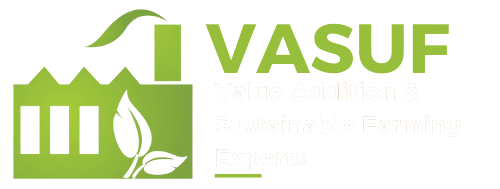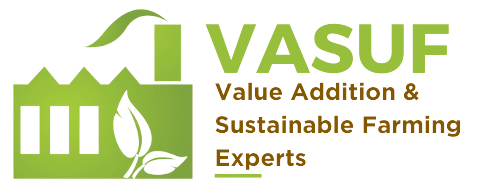For millions of Africans, life is often rough, cruel, and short. Transforming Africa’s Food and Agribusiness sectors requires a fundamental shift in perception. For too long, Africa’s Food and Agribusiness sectors have been associated with subsistence, poverty, and hardship.
- After years of high unemployment rates, increasing poverty levels, high food wastage, unsafe processed foods, post-harvest losses, post-harvest waste, poor agronomic practices, ravaging effects of climate change, overreliance on food imports, and poorly managed food factories, we felt the need to innovate solutions to sustainably face the challenges head-on.
“Facts are stubborn; and whatever may be our wishes, our inclinations, or the dictates of our passion, they cannot alter the state of facts and evidence.”
— On Food Waste:
Around one-third of food produced globally is lost or wasted, resulting in economic losses of an estimated $1 trillion a year. In sub-Saharan Africa, the estimate is roughly 37%* or 120-170 kg/year per capita.
–– On Post Harvest loss/waste:
For post-harvest handling and storage loss only, the FAO estimate is 8 percent, and the African Post-harvest Losses Information System (APHLIS) estimate is 10-12 percent
–On Unemployment Rate:
Sub-Saharan Africa’s unemployment rate for 2021 was 7.62%, a 0.37% increase from 2020. The average for 2021 based on 52 countries was 9.66 percent. The highest value was in South Africa: 28.77 percent and the lowest in Niger: 0.67 percent.
–On Climate Change:
Africa is the most vulnerable continent to climate change impacts under all climate scenarios above 1.5 degrees Celsius. Despite having contributed the least to global warming and having the lowest emissions, Africa faces exponential collateral damage, posing systemic risks to its economies, infrastructure investments, water and food systems, public health, agriculture, and livelihoods, threatening to undo its modest development gains and slip into higher levels of extreme poverty.
–On Poverty and Low Agricultural Productivity:
The low productivity of African agriculture has a high human and economic cost. High rates of poverty prevail, especially in major agro-ecological zones such as the sub-humid Guinea Savannah and the semi-arid Sahel regions where more than half of the population lives on less than $1.25 per day.
256 million people are under-nourished in Africa. Low productivity also damages the competitiveness of African agriculture. If nothing is done, the number of extremely poor people will rise from 420 million in 2015 to 550 million by 2025.
—On Imports:
Africa spent over $64.5 billion in 2022 on importing food and may spend even more in subsequent and forthcoming years. This is unsustainable, irresponsible, and unaffordable. It is also wholly unnecessary. Science, Technology, and Innovation in the Food and Agriculture sector can turn the destiny of Mother Africa around.
“The Tea Break Session……..”
In the course of an International Convention in 2022, during a tea break session, an accidental and coincidental meet-up of young, ardent, and visionary food scientists, agronomists, marketers, engineers, and business advisory experts led to the birth of VASUF-[Value Addition &Sustainable Farming].
- VASUF is a group of ardent and visionary experts, with a combined experience of over 20 years, aiming to be the leader in offering quality technical solutions in Food Value Addition Practices, Food Product Development, Technologies In Sustainable Farming, Food Processing Factories Set Up, Market Insights, and Business Advisory services in Africa and Beyond.
VASUF ‘s technical solutions are targeting farmers, food processors, corporates, developmental organizations, entrepreneurs, and government bodies to catalyze growth in Food &Agribusiness sectors sustainably. We believe these crucial technical services will induce development and bring massive impact by ensuring sustained incomes to farmers, creating long-term employment opportunities in the food factories set up in our villages, spurring economic growth, and most importantly, ensuring we have quality farm harvests and safe food products from our local factories that protect what we value most—the health of our families, the air we breathe, the water we drink and the future of our children and generations to come.

